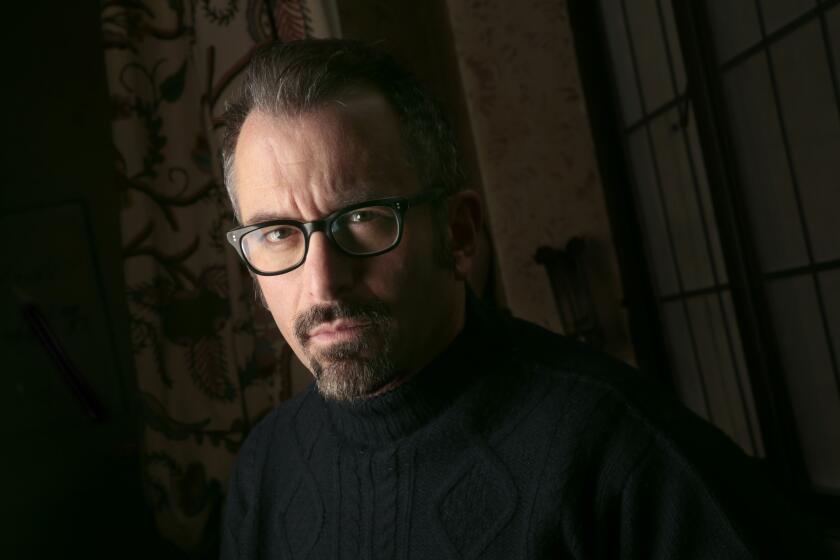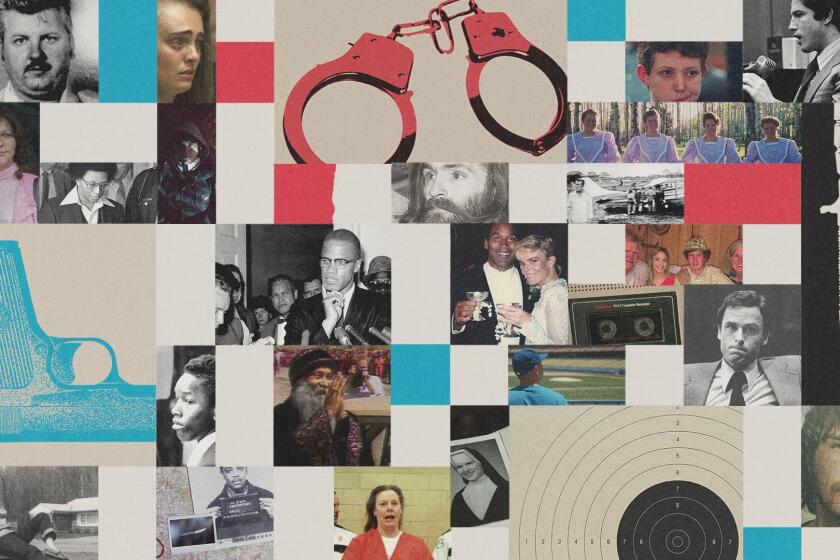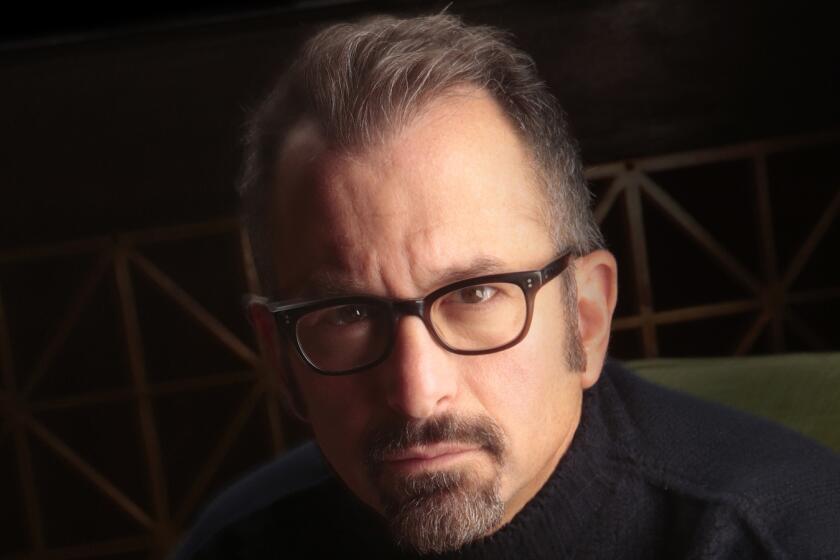In ‘The Jinx — Part Two’ finale, Andrew Jarecki says Robert Durst was enabled by wife and siblings
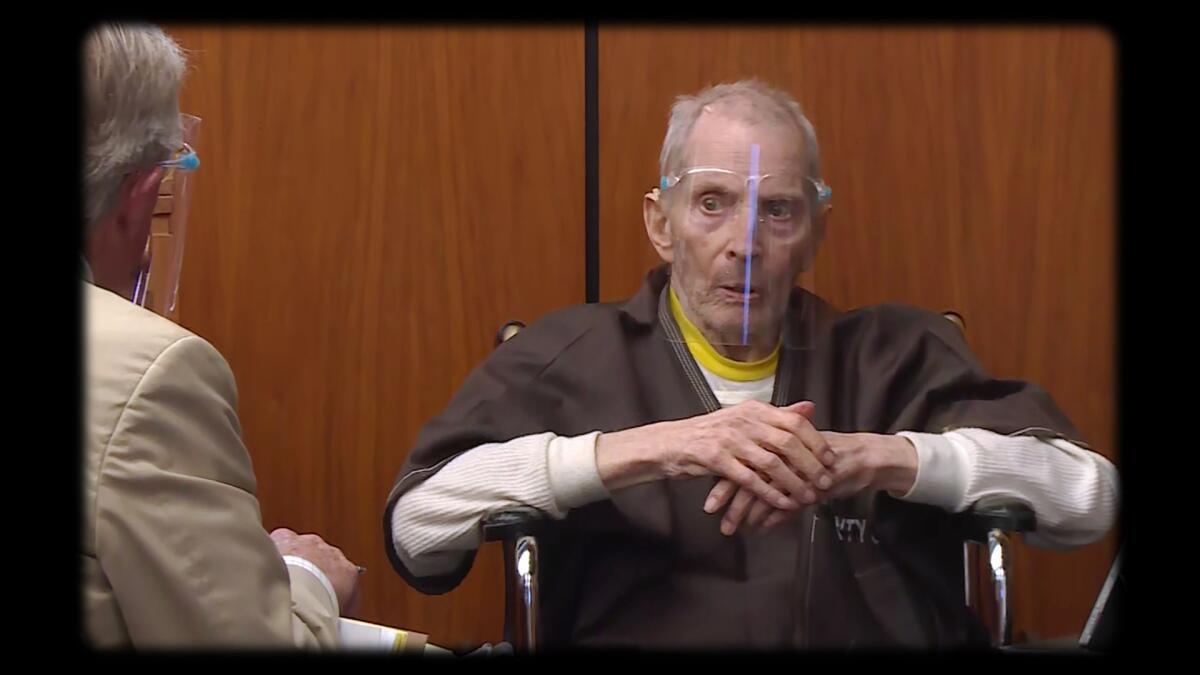
- Share via
NEW YORK — Filmmaker Andrew Jarecki has spent much of the last 20 years thinking about Robert Durst, the notorious real estate heir who was suspected in multiple murders but managed to evade justice until the very end of his life.
Jarecki’s Emmy-winning 2015 docuseries, “The Jinx: The Life and Deaths of Robert Durst,” thrust Durst into the spotlight by revisiting the mysterious deaths to which he was linked: the 1982 disappearance of Durst’s first wife, Kathie McCormack Durst; the murder of his best friend, Los Angeles writer Susan Berman, in 2000; and the grisly killing and dismemberment of his elderly neighbor, Morris Black, in 2001. And it famously led to Durst’s arrest in New Orleans the day before the broadcast of the explosive yet controversial finale in which he muttered, “killed them all, of course” to himself while in the bathroom.
Sunday’s finale of the HBO documentary series “The Jinx,” arrived just a day after its subject, Robert Durst, was arrested for the 2000 killing of writer Susan Berman and ended with what appears to be a jaw-dropping quasi-confession.
In “The Jinx — Part Two,” a six-episode follow-up that concluded Sunday on HBO and is available to stream on Max, Jarecki looks at the dramatic events that have unfolded since Durst’s quasi-confession aired on national television and triggered a craze for high-end true-crime documentaries. This time around, the focus is less on Durst and his damaged psychology and more on the circle of friends and confidantes who helped him along the way.
“When we were making the first ‘Jinx,’ we would say, ‘How do you kill three people over 30 years and get away with it? It takes a village,’” said Jarecki, in a windowless editing suite in Chelsea, where he was joined by executive producer Zac Stuart-Pontier, who after 15 years in “The Jinx” world has a nearly instant recall of all things Durst-related. The conversation, which was scheduled for a half-hour, instead stretched to 90 minutes, an indication that the documentarians are nowhere near finished talking about Durst, who died in 2022 — or the friends and family who enabled him for years.
TV critic and true-crime buff Lorraine Ali selects the 50 best true-crime documentaries you can stream on Netflix, HBO Max, Hulu, Prime Video and more.
“This idea of complicity was for us so fascinating because it broadens the story,” Jarecki said. “Who are these people who see themselves as good, honest, decent people and don’t see themselves as accomplices in anything?”
Sunday’s finale, fittingly titled “It Takes a Village,” takes a critical look at the people who understood Durst — and what he was capable of — better than anyone: his siblings, Wendy, Douglas and Thomas; and his second wife and heir, Debrah Lee Charatan, who did not sit for an interview but is present in the series through video depositions and often riveting prison phone calls with her husband. The series portrays her as a shrewd opportunist, more consigliere than spouse, who helped Durst safeguard his fortune through numerous legal battles, used his wealth to amass a real estate empire of her own, and is now fighting a wrongful-death lawsuit from Kathie’s family, the McCormacks.
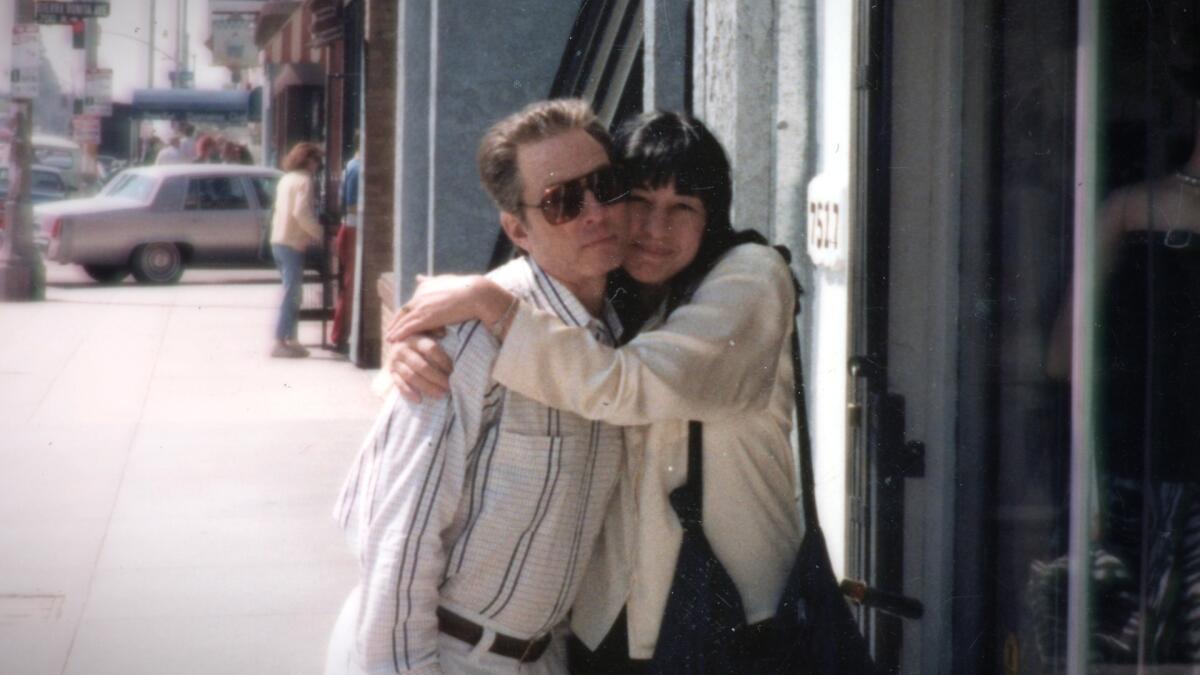
“This is a person who’s really played the long game,” said Jarecki, whose 2010 feature film “All Good Things” was inspired by Durst — and led to his participation in “The Jinx.”
The finale recounts the history of Charatan’s relationship with Durst, which began in the late 1980s, when she was newly divorced and freshly bankrupt, and he was a wealthy eccentric rumored to have killed his first wife. The couple married in a secret ceremony in 2000, shortly after authorities in Westchester County, N.Y., reopened the investigation into Kathie’s disappearance — and days before Berman was shot in the head.
The series concludes with a dramatization of a woman resembling Charatan driving a luxury convertible down a scenic road and arriving at a palatial waterfront estate. It is intercut with deposition footage of the real Charatan, who is interrogated about sticking by Durst as he was accused of horrific things. “Was it worth it?” asks an attorney for the McCormack family. “I think so,” she says.
“I think she thought, ‘Well, I’m gonna make a calculation, that there’s so much value in staying connected to this person [Durst], because he’s going to die with 100-plus million dollars,’” Jarecki said. “By the way, it was hard, what she did — managing Bob for all those years. That was not easy. He’s an incredibly time-consuming, infuriating partner.” (Exhibit A: In one tense video call shown in the series, Durst clashes with Charatan over payment of his legal fees, threatening to write her out of his will. She skillfully walks him back.)
Charatan’s relationship with Durst came under more scrutiny following his death in January 2022. Because of a legal technicality in California, his conviction for Berman’s murder was abated — essentially vacated. This triggered the McCormack family to file a $100-million wrongful-death lawsuit against Durst’s estate, which is controlled by Charatan.
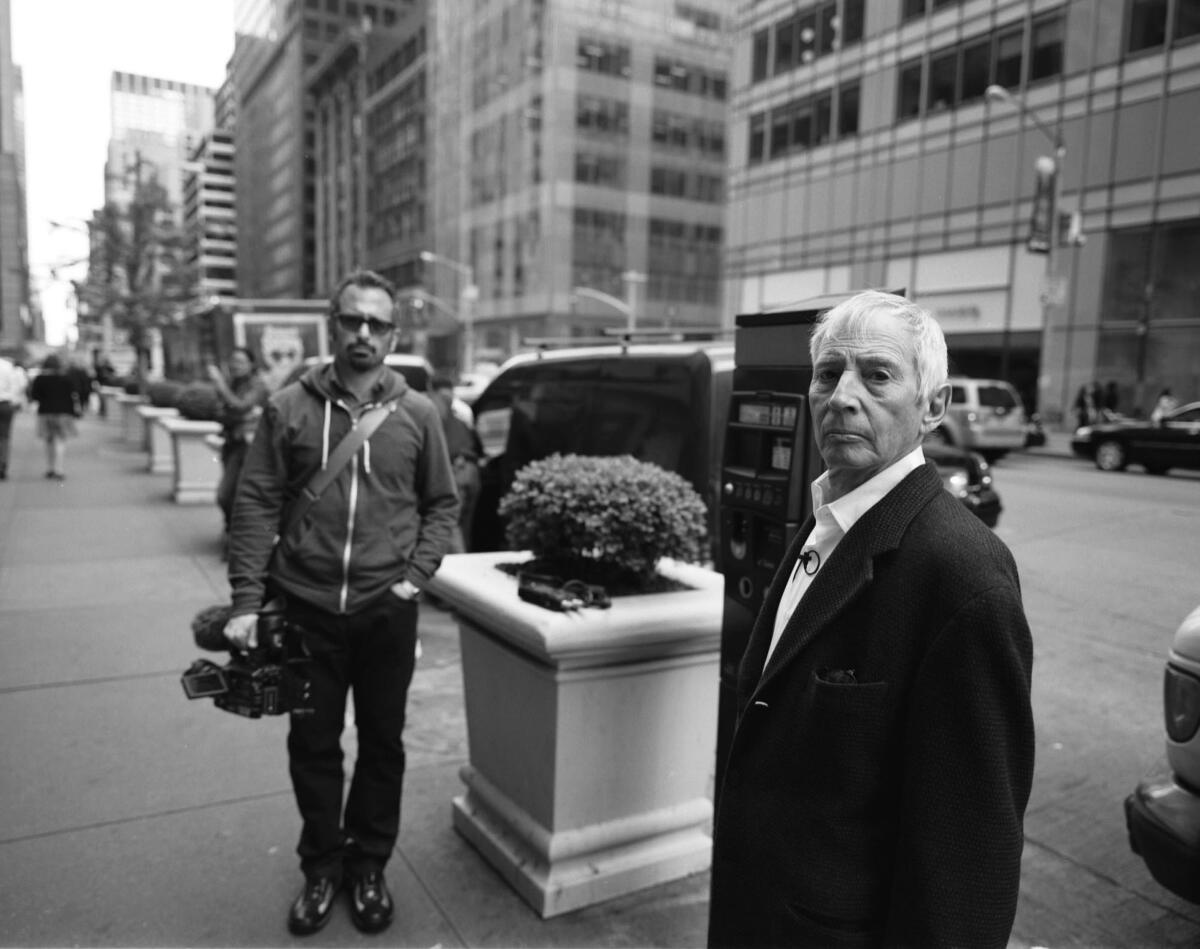
Charatan sat for a deposition in the case. In portions that appear in “The Jinx,” she admits to living with another man throughout her marriage to Durst and says that she “respects” the jury’s guilty verdict in the Berman case. However, she says she does not believe that Durst killed Kathie.
“She has had so many chances to redeem herself, including potentially being in the show,” Jarecki said. “She could have explained why she was with him. She could have explained what she really believed.” The filmmaker said he tried to get Charatan to participate in the documentary, even going to dinner with her multiple times to plead his case, but was not successful.
You might call Andrew Jarecki an expert in family dysfunction.
“It Takes a Village” also considers the role played by Durst’s estranged younger siblings, who in deposition testimony say that they feared their older brother and even suspected he may have had something to do with Kathie’s disappearance but did little to assist the investigation at the time. They also reportedly never reached out to the McCormack family to offer support or condolences.
In audio testimony, Thomas Durst says that his siblings Wendy and Douglas never mentioned Kathie again after the disappearance: “It was like she had become a non-person and I decided, ‘You know what? Kathie is not just missing. Kathie’s dead, and Bob is responsible — but I don’t know what I can do.’”
Kathie’s body was never found, and in 2017 she was declared legally dead. Durst was formally charged with her death in 2021, but he died before a trial got underway.
“What would it have cost for them to reach out to Kathie’s family and say: ‘Listen, we didn’t kill Kathie. But boy, we feel terrible about what happened. And we want to make some kind of a contribution for you,’” Jarecki said. “They didn’t have to admit their complicity, but at least it would have been an acknowledgment.”
“The Jinx” also captures the moment when Jarecki receives a phone call informing him that Durst is dead. Though his demise was not exactly surprising — Durst was 78 and had been in failing health for years — it still left him nonplussed, Jarecki said. “He had been in my life for so long, it didn’t feel real that he was going to disappear,” he said. “I didn’t miss him. I didn’t think, ‘Oh, we had these beautiful times together.’ ... I just thought, I actually don’t know how I feel about this.”
In the months before his death, Jarecki and Stuart-Pontier said they worked together on numerous drafts of a letter to Durst, pleading with him to come clean about what happened to Kathie. But Durst never revealed what he knew about her fate.
The gist of the letter was that Durst should “just tell people what happened with Kathie,” Jarecki said. “Maybe it was a terrible accident. Whatever it was, even if it’s bad, even if it makes you look terrible … everybody’s going to say, ‘Even though he did some terrible things, before he died he somehow found a way to have a little tiny bit of redemption.’” Jarecki believed that Durst saw himself as fundamentally misunderstood and tried to appeal to that.
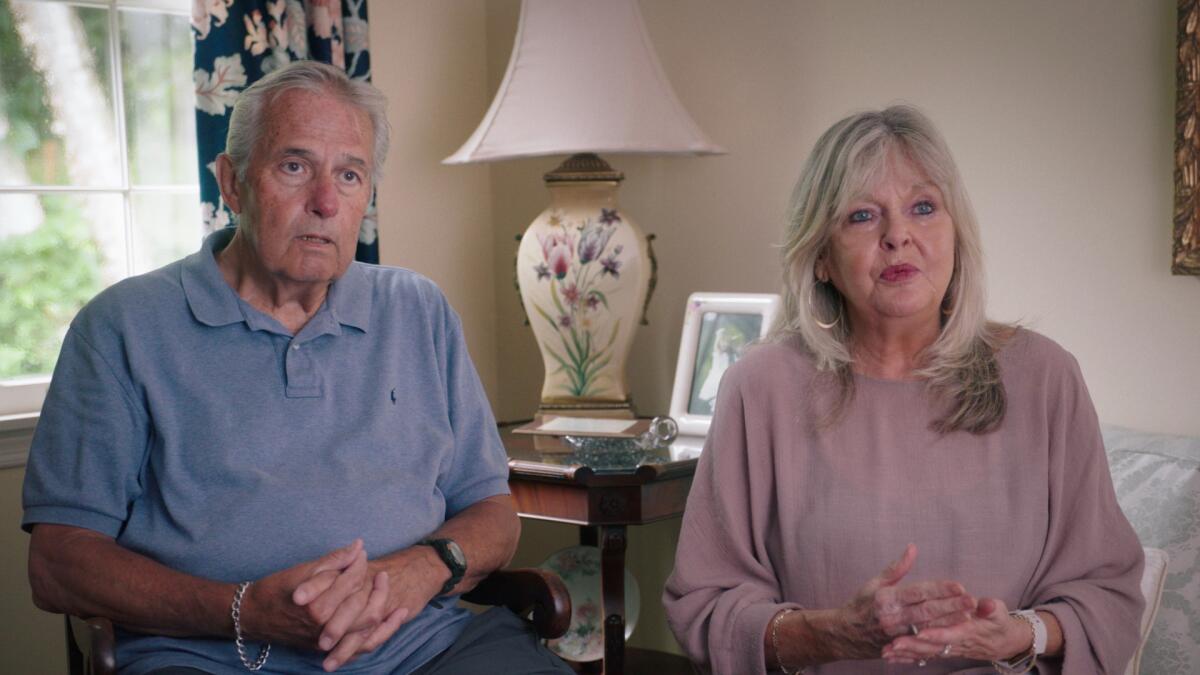
“One of the reasons why he agreed to talk to me to begin with is that he had applied to get into a co-op building and was rejected,” he said. “And his attitude was like, ‘Oh, I’ve never been convicted of murder. So why are they treating me like a pariah?’”
They decided not to send the letter because “it was inserting us in the story in a way that might alter [it],” said Jarecki, who believes that Durst killed Kathie because she had accomplished so much and thrown into relief how little he’d done despite extraordinary privilege. “Bob is a faker, and Bob knows he’s a faker,” he said. “Kathie comes along and falls in love with him, and at a certain point realizes that he’s a faker. And he’s really humiliated by that.”
The filmmakers began to think about another season of “The Jinx” as they reviewed testimony from conditional witnesses in the Berman case — people like Nick Chavin, the longtime friend turned “secret witness” against Durst. “There’s nothing like friends turning on each other,” Stuart-Pontier said. “That was the first inkling that the people around Bob were going to really play a huge part in the telling of the story going forward.”
“The Jinx — Part Two” makes the case that before Berman became one of Durst’s victims, she was one of his enablers. Perhaps the biggest bombshell of the season is the audiotape of an interview Berman did with journalist Albert Goldman a few days after Kathie’s disappearance, in which she smeared her friend’s character and planted the idea that she’d been the victim of a robbery — all of which suggested she was helping Durst cover up a crime.
From Netflix’s new ‘Unsolved Mysteries’ to ‘A Wilderness of Error,’ true-crime TV is rife with re-creations. But the trope raises ethical issues.
The theme of complicity is, if anything, more relevant in the current political climate than it was when Season 1 of “The Jinx” aired in 2015, just a few months before Donald Trump announced he was running for president. It’s difficult to watch Season 2 without thinking about the biographical similarities between Trump and Durst, controversial scions of powerful New York real estate dynasties known for acting with impunity.
“All of this stuff is very current,” Jarecki said, noting how Republicans who once denounced Trump have since fallen back in line. “We’ve talked about why ‘The Jinx’ matters now. But it just feels like this idea of complicity is so important to what’s happening.”
More to Read
The complete guide to home viewing
Get Screen Gab for everything about the TV shows and streaming movies everyone’s talking about.
You may occasionally receive promotional content from the Los Angeles Times.
